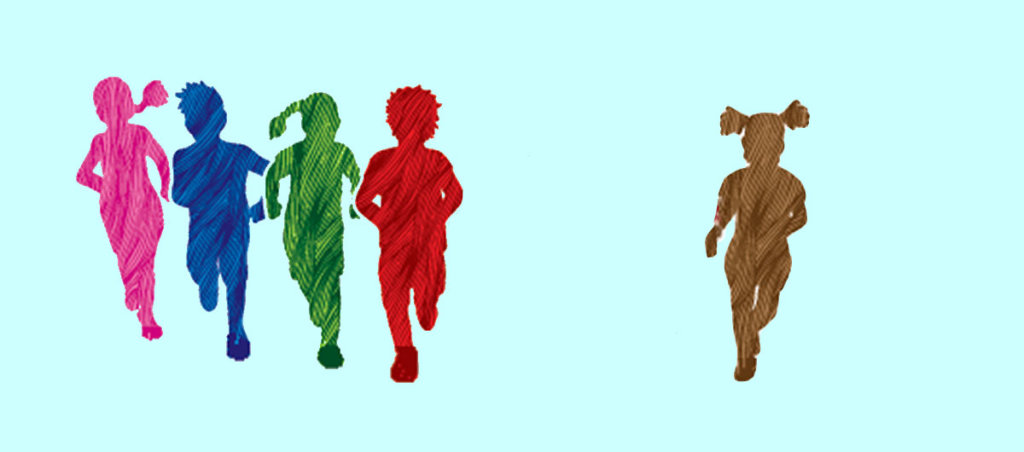A white mother of a Black son is like a fly on the wall to other white people, bearing witness to their unconscious, unwitting racism.
This article was made possible because of the generous support of DAME members. We urgently need your help to keep publishing. Will you contribute just $5 a month to support our journalism?
I don’t usually pay attention to Fox & Friends, Trump’s favorite TV show, but something co-host Brian Kilmeade said back in June has stuck with me. When talking about the children being detained in literal cages, often separated from their parents—some of them likely lost forever and vulnerable to predatory adoption, as detailed in this harrowing article by Christopher Stroop—Kilmeade admitted that images of crying toddlers behind bars were difficult to look at. But, he quickly added, “like it or not, these aren’t our kids. Show them compassion, but it’s not like he’s doing this to the people of Idaho or Texas. These are people from another country.”
What do Kilmeade, and those who think like him, mean when they say these are “not our kids”? I’d especially like to ask those commentators who like to describe themselves as Christian what they think “our” means in this context. I understand these children aren’t mine in the sense that I have any say in their lives. I know they belong with their parents, siblings, grandparents who love them. But to declare them irrevocably not ours—there’s an ugliness, a lack of soul in the refusal to see in these children the same claims to humanity we see in our own. We’re just going to keep perpetuating harm until and unless we understand one simple truth: They are all our children.
As a white person, I know this is a difficult concept for many of my fellow white people.
This has been a year filled with white women, in particular, threatening or causing damage to Black children. From BBQ Becky to Permit Patty and Cornerstore Caroline, white women have made the news calling the police on Black kids and families for doing, well, just about anything. Given the terrifying record of police interactions with Black people, we know that any unnecessary call is not only ridiculous but potentially lethal.
I’m a white mother of a Black son, and I’ve chatted with fellow white moms who could easily be the ones calling the cops on my child as he progresses into adolescence and manhood. After all, when I’m out in the world solo, without my Black husband or son in tow, I hear enough casual, genteel racism to feel like a spy behind enemy lines. I’ve seen ample evidence that “not our kids” isn’t just a mindset found on Fox News. Sometimes white parents will smile and coo over black and brown kids when they’re young, but grow colder as the kids grow older. Sometimes the racism is coded in talk of “good schools” and “sketchy neighborhoods.” Not our kids.
Sometimes it’s nonverbal, like when a fellow white mom catches my eye, then looks meaningfully at the visiting team’s cheerleaders, who are Black and whose cheers are louder and whose dances are more intense than the white home team’s. She’s inviting me to join her in judging them. Not our kids.
Sometimes it’s even aimed at my child, who the guy sitting next to me at the basketball game didn’t realize is mine. “There he goes again,” my white fellow parent grumbled when my son took an ill-advised shot and misses. “They always hog the ball.” Not our kids.
I didn’t confront him. I just put on my headphones and tuned him out. Next game, I sat closer by the Black parents. I noticed they cheered for all the kids.
In Robin DiAngelo’s White Fragility: Why It’s So Hard for White People to Talk About Racism, she writes that white people need to confront our own biases. Even those of us who feel like we’re fairly racially sophisticated have them; they’re part of the societal DNA, baked into the cultural cake. Part of white people’s often furious denial and defensiveness around race and racism comes from our need to protect our claims of innocence. We can’t be racist, we cry, because we don’t even see race! We post on Facebook about diversity! We vote the right way. Is our school nearly all-white? We didn’t even notice.
White naïveté by itself is mostly ridiculous, but it’s dangerous when it masks and protects white indifference, white violence. This is what I need to protect my son from, and I can’t do that until I take an honest look at my own racist impulses. Here’s one: I used to cringe at how loudly Black families cheer for their children on graduation day. I never saw my reaction as any kind of racial bias—I thought it was a personal preference for understatement. I didn’t know, until I had my son, what the cheering was really for. I hadn’t felt the years of muttered insults, lowered expectations, distrustful teachers, dismal political landscape, terrifying political justice system—all the component parts of a message from white America to black and brown people that these are “not our kids.” Until I experienced life as the parent of a Black child, I hadn’t understood how necessary that cheering truly is. The great poet Lucille Clifton invited her readers to “come celebrate with me that every day something has tried to kill me and has failed.” Black parents cheer because their kids—our kids—have survived in a society that would as soon kill them as claim them.
So miss me with any definition of who “our kids” are. I’m an imperfect parent and god knows I’m still learning every day. But one day those kids—all of them—are going to be the workers and the voters and the people who take care of us. They are the parents of our grandchildren. They are ours. They are us.
